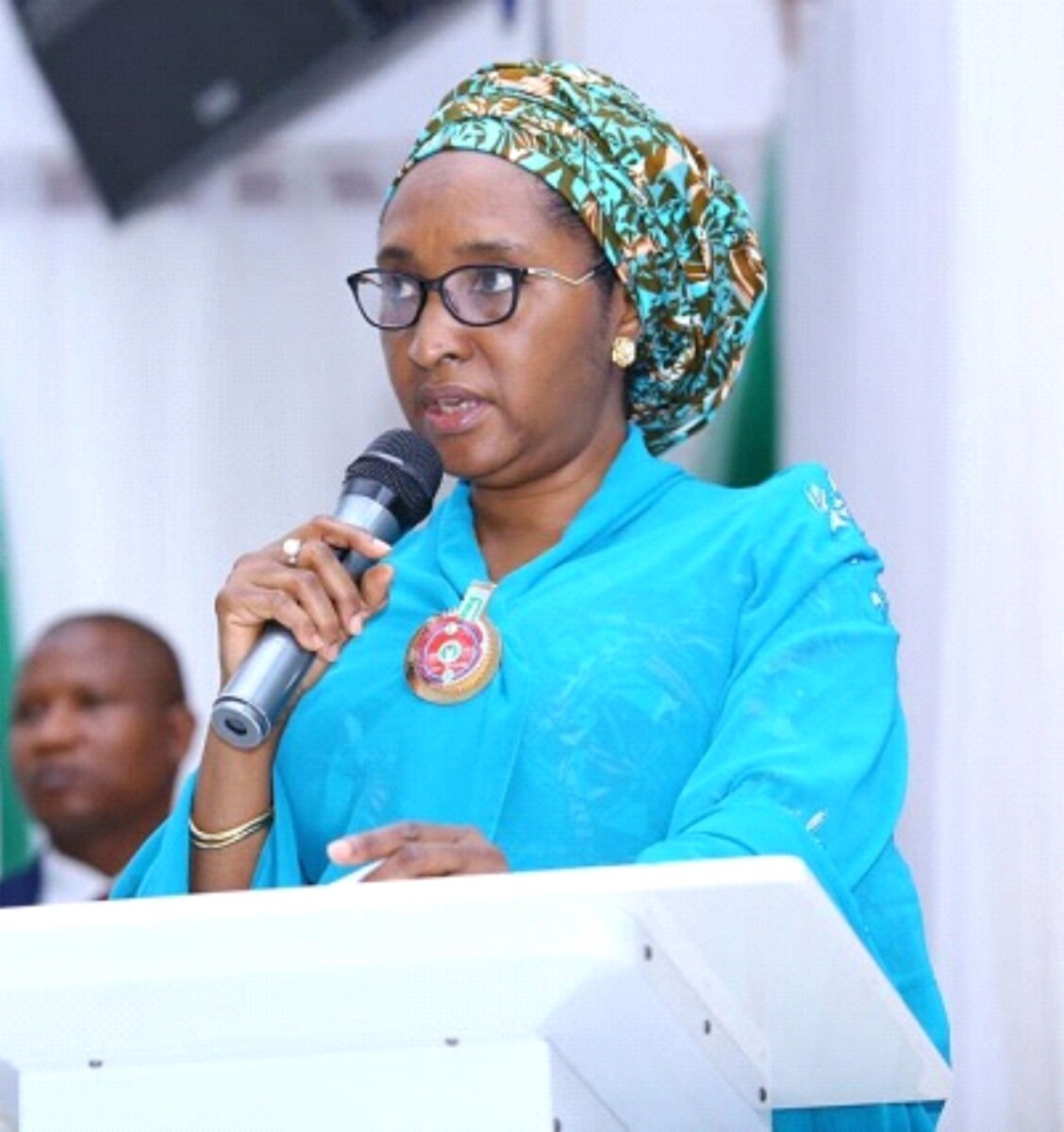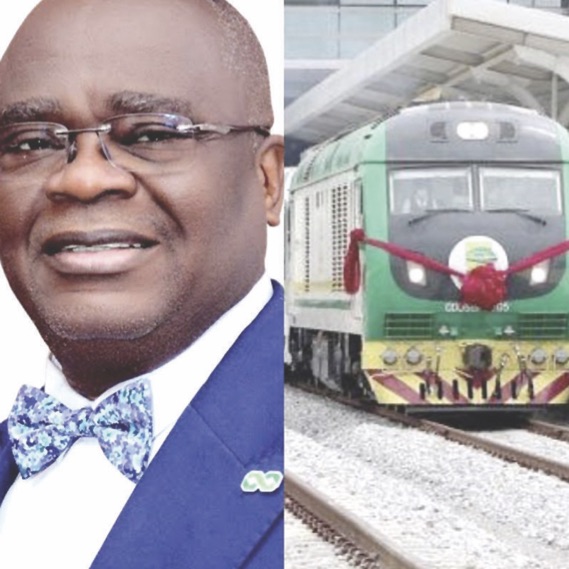Business
No budgetary provision for COVID-19 vaccines – Finance minister

Minister of Finance, Budget and National Planning, Mrs Zainab Ahmed, has said that there is no provision in the 2021 budget to procure COVID-19 vaccines.
She stated this during a virtual presentation of the 2021 budget in Abuja, adding however that the government was working on the type and quantity of COVID-19 vaccines to procure.
Nigeria is expected to receive about 100,000 doses of the Pfizer and BioNTech approved COVID-19 vaccines by the end of January.
But the minister said her ministry and the Ministry of Health would meet to finalise the amount to be allocated to vaccine procurement in the next two weeks.
The country, under phase two of its COVID-19 vaccination scheme, will also get 42 million extra doses of vaccines through the COVAX facility.
The government is targeting to vaccinate about 40 per cent of Nigeria’s population in 2021.
Ahmed expressed the hope that the National Assembly would provide a supplementary budget for additional spending on COVID-19 vaccines, when needed.
She said, “We agreed that the effort needed to be done so that we have clarity as to whether the provisions in the budget will be adequate or we have to make additional provisions by way of a special supplementary budget to make more provisions for COVID-19 vaccinations.”
On whether there was a provision for fuel subsidy in the 2021 budget, Ahmed stated that no such provision was made for it.
She also foreclosed subsidy on electricity due to the recent suspension of the hike in electricity tariff.
The minister, however, added that the Finance Act, among others, exempted workers within the N30,000 minimum wage bracket and below from personal income tax deductions.
According to her, another key provision in the Act is the exemption of all micro and small companies earning N25 million or less as annual turnover from paying the Tertiary Education Tax.
The Act also excluded commercial airline tickets, commercial aircraft spare parts and components; interests in land and buildings; animal feed and hire, rental or lease of agriculture equipment for agricultural purposes from 7.5 per cent Value Added Tax (VAT) charge.
She said, “The key guiding principle of the Finance Act 2020 is to ensure that there is a balance between broader macroeconomic strategies to attract investment, grow the economy, create jobs as well as provide immediate fiscal strategies for accelerated domestic revenue mobilisation, in response to the COVID-19 pandemic and the domestic / global economic downturn.
“Specifically, the Finance Act 2020 adopts counter-cyclical fiscal policies in response to the COVID-19 pandemic by providing fiscal relief for taxpayers; reforms fiscal incentive policies to prioritise job creation and accelerate economic recovery and growth; and fosters closer coordination of monetary, trade and fiscal policies.”
Ahmed added that the 2020 Finance Act also provided for the establishment of a N500 billion crisis Intervention Fund as well as other sources approved by the National Assembly to fund the Federal Government’s expenditures.
Proceeds from unclaimed dividends of listed companies and unutilised amounts in dormant bank accounts outstanding for six years or more would be channelled to the fund, she stated,
The unclaimed dividends and bank balances are subject to a perpetual trust to be managed by the Debt Management Office (DMO), with governing council to be chaired by the finance minister and co-chaired by a nominee from the organised private sector who is of impeccable integrity and reputation.
Ahmed, however, added that genuine beneficiaries would be able to claim their funds back from the Federal Government at any time.
The minister also spoke on the performance of the revised 2020 budget, noting that the Federal Government expended a total of N1.8 trillion on capital projects.
According to her, the N1.8 trillion represents about 89 per cent of the total provision for capital projects.
She explained that out of the amount spent, N118.37 billion was released for COVID-19-related capital expenditure.
Ahmed said while the Federal Government projected N9.97 trillion for expenditure in 2020, it spent about N10.08 trillion, representing 101 per cent performance.
Debt service, she also stated, gulped N3.27 trillion while personnel cost, including salaries and pensions, accounted for N3.19 trillion.
She noted that the crude oil price benchmark was retained at $40 per barrel although the World Bank forecast $44 per barrel average crude oil price in 2021.
She added that crude oil production was projected to increase from 1.80 million barrels per day (mbpd) in 2020 to 1.86mbpd in 2021, as economies recover from recession, and moderated by the Organisation of Petroleum Exporting Countries (OPEC) quota agreements.
Ahmed stated that the aggregate revenue available to fund the N13.5 trillion 2021 budget was projected at N7.99 trillion (36.9 per cent higher than the 2020 projection of N5.84 trillion).
To promote fiscal transparency, accountability and comprehensiveness, she said the budgets of 60 Government-owned Enterprises (GOEs) were integrated in the Federal Government’s 2021 budget.
“In aggregate, 30 per cent of projected revenues is to come from oil-related sources while 70 per cent is to be earned from non-oil sources. Overall, the size of the budget has been constrained by our relatively low revenues,” she added.
The minister also explained that the deficit of N5.6 trillion will be funded via domestic and external borrowings of N2.34 trillion apiece.
She said N2.5 billion was expected as privatisation proceeds.
The budget also has an aggregate capital expenditure of N4.37 trillion or 32.2 per cent of total expenditure, which is 62.9 per cent higher than the 2020 Revised Budget, inclusive of capital component of statutory transfers and GOEs.
At N3.32 trillion, the provision for debt service for 2021 is 24.5 per cent of total expenditure and 12.6 per cent higher than 2020 revised budget, according to her.
The minister also put the provision to retire maturing bonds to local contractors / suppliers at N200 billion.
Director-General, Budget Office of the Federation (BoF), Mr Ben Akabueze, said the country was expecting donations of COVID-19 vaccines to cover 20 per cent of its population while 50 per cent would be acquired to achieve herd immunity.
Akabueze said, “To have herd immunity, 70 per cent of the population has to be vaccinated. Already, vaccine for 20 per cent of the population will be donated while the balance of 50 per cent will be paid for by the government.”
Business
Dangote Opens Refinery Investment to Nigerians With Public Share Sale Plans

Dangote Opens Refinery Investment to Nigerians With Public Share Sale Plans
Aliko Dangote, President of the Dangote Group, has announced that ordinary Nigerians will soon be able to buy shares in the $20 billion Dangote Petroleum Refinery, a move aimed at expanding public participation in one of Africa’s largest industrial projects. The announcement was made during a guided inspection of the refinery by NNPC Limited management, led by Group CEO Bayo Ojulari, and senior officials of the company.
Dangote stated that arrangements are being finalised to allow individual investors to acquire shares within the next four to five months, giving Nigerians direct ownership in the refinery. “Individually, Nigerians too will have an opportunity… in the next maximum four or five months, they will actually be able to buy their shares,” he said.
The Nigerian National Petroleum Company (NNPC) currently holds a 7.25 % stake in the refinery on behalf of Nigerians, ensuring that public interest remains a key aspect of the project. Dangote further explained that investors will have flexibility in receiving returns, saying, “People will have a choice either to get their dividends in naira or to get their dividends in dollars because we earn dollars.”
READ ALSO:
- SERAP Urges Tinubu to Repeal ‘Unlawful’ Mass Surveillance Regulations
- Trump Imposes 15% Global Tariff Hours After Supreme Court Blocks Previous Tariffs
- APC Wins Rivers Ahoada East State Constituency II Bye‑Election
Beyond the public share offering, Dangote highlighted ongoing collaboration with NNPC to enhance operations and explore opportunities across the oil and gas value chain, including potential upstream partnerships. “Most likely… we will partner with them, maybe in some of the upstream. They, too, will partner with us here because here is not a refinery. It’s an industrial hub,” he said.
The refinery is also set to support additional industrial ventures, including the production of linear alkylbenzene (LAB), a key raw material for detergents. Dangote noted that production will be sufficient to meet demand across the African continent within 30 months, underscoring the facility’s industrial significance.
Industry analysts expect the refinery to list on the Nigerian Exchange (NGX) through a phased public offering of 5–10 % equity, similar to earlier listings of Dangote Cement and Dangote Sugar. The move is aimed at enhancing market liquidity, transparency, and public participation, while retaining majority ownership by the Dangote Group.
The public share offering represents a milestone in Nigeria’s industrial and energy sector, offering citizens an opportunity to participate in a globally competitive infrastructure project while benefiting from dividends in local and foreign currency.
Dangote Opens Refinery Investment to Nigerians With Public Share Sale Plans
Business
CBN Policies, Foreign Inflows Drive Naira to Two-Year Peak

CBN Policies, Foreign Inflows Drive Naira to Two-Year Peak
Nigeria’s naira has extended its recent rally, trading at one of its strongest levels against the U.S. dollar in nearly two years, supported by sustained foreign portfolio inflows, tighter liquidity management, and targeted policy interventions by the monetary authorities.
A macroeconomic update by CardinalStone shows that the local currency has appreciated 6.9 per cent year-to-date at the official foreign exchange market, closing at ₦1,347.78/$—its strongest performance since early 2024. The appreciation reflects improved FX liquidity and growing confidence in the official trading window.
Despite the gains, a gap persists between the official and parallel markets. However, the premium narrowed from about 5.7 per cent to roughly 3.2 per cent following renewed foreign exchange interventions by the Central Bank of Nigeria. According to CardinalStone, the compression of the spread indicates stronger liquidity conditions in the official market, reducing incentives for speculative trading and arbitrage.
As part of efforts to further stabilise the FX market, the CBN recently authorised licensed Bureau de Change (BDC) operators to access foreign exchange from approved dealers at prevailing market rates, subject to a weekly cap of $150,000 per BDC and strict Know-Your-Customer (KYC) requirements. Under the framework, operators must sell unused FX balances within 24 hours, limit cash transactions to 25 per cent of total trades, and settle transactions through licensed financial institutions.
READ ALSO:
- Edo Governor Okpebholo Names Mercy Johnson-Okojie Special Adviser
- Many Feared Dead as Suspected Lakurawa Militants Attack Kebbi Communities
- AMAC Polls Shock: Another PDP Candidate Withdraws from FCT Race, Backs APC
With 82 licensed BDCs currently operating, CardinalStone estimates that potential FX supply to the segment could rise to about $50 million monthly. Although this remains significantly below pre-pandemic levels, the renewed supply has helped ease retail FX demand pressures and compress the premium in the parallel market.
While foreign inflows have strengthened the naira, analysts caution that continued appreciation could prompt profit-taking by offshore investors. CardinalStone estimates outstanding foreign portfolio investment (FPI) exposure at between $12 billion and $14 billion, noting that Nigeria’s carry trade remains one of the most attractive across emerging and frontier markets.
The firm added that assuming many investors entered the market at around ₦1,500/$, a move toward ₦1,200–₦1,250/$ could deliver over 22 per cent FX gains on currency alone. Such gains could heighten the risk of portfolio rebalancing or exits, particularly as political and election-related uncertainties begin to build.
Ahead of the latest meeting of the Monetary Policy Committee, analysts describe the macroeconomic signals facing policymakers as mixed. Inflation has started to moderate, while short-term interest rates have converged near 22 per cent, about 500 basis points below the 27 per cent Monetary Policy Rate (MPR).
However, the CBN has signalled low tolerance for excess liquidity, intensifying Open Market Operations (OMO) issuances and keeping the Standing Deposit Facility (SDF) attractive to absorb surplus funds and prevent renewed inflationary pressure. Analysts also point to concerns around election-related liquidity, which is expected to intensify in the second half of the year, with over 75 per cent of projected 2026 liquidity expected in the first half.
Looking ahead, CardinalStone expects the CBN to hold the policy rate while adjusting the asymmetric corridor to align SDF rates with OMO yields and preserve the attractiveness of naira assets for foreign investors. Forward market indicators suggest a softer currency path later in the year, with the naira projected to trade within a ₦1,350–₦1,450/$ range in 2026, despite the recent rally.
CBN Policies, Foreign Inflows Drive Naira to Two-Year Peak
Railway
Railway track vandalism: Urgent need for laws prohibiting scrap/metal picking to protect critical assets

Railway track vandalism: Urgent need for laws prohibiting scrap/metal picking to protect critical assets
By Onyedikachi Stanley Onovo
The wanton destruction and theft of Nigeria’s railway infrastructure and other critical public assets represent one of the gravest threats to national development and security.
Across the nation—from the Warri-Itakpe line to Abuja-Kaduna, the Eastern and Western Districts, Lagos-Ibadan, and throughout the Northern network—vandals systematically dismantle tracks, steal armoured cables, and pillage essential equipment. This crisis demands an immediate and robust legislative response.
The unending menace
The vandalism is perpetrated by a network of individuals, from local miscreants (“iron condemn”) to organised merchants who purchase and export stolen materials. Security reports and countless arrests underscore the scale of the problem:
In December 2023, a private security firm arrested 13 suspects for vandalising Abuja Mass Transit Rail assets. The suspects were said to be casual workers engaged by a Chinese company working on the railways, but said to have used the opportunity to steal the materials.
On June 2024, The Cable reported that the Nigerian Army arrested 47 suspected rail track vandals in Kaduna State.
In October 2025, police arrested a suspect vandalising railway electrical installations also in Kaduna State.
Radio Nigeria in December 2025 announced the arrest of three persons in Kwara State for vandalizing and stealing Railway clips and nuts in Offa.
In May 2021, TVC reported some individuals, including one Ejike Okeke were apprehended in Enugu with stolen sleepers and tracks.
On the 30th of January 2026 the Nigerian Television Authority reported that the NSCDC, Bauchi State Command arrested five suspects and intercepted a truck carrying vandalized railway tracks.
This relentless assault has plagued successive management of the Nigerian Railway Corporation (NRC), defying conventional counter-strategies.
A transformative leadership initiative
A pivotal shift began under the administration of President Bola Ahmed Tinubu with the appointment of Dr. Kayode Opeifa as Managing Director/CEO of the NRC.
Dr. Opeifa introduced a fundamental paradigm shift by redesignating what was carelessly termed “scrap” as “unserviceable critical national assets.”
This reframing has driven a transformative partnership with experts to manage these assets responsibly. The era of controversial public auctions—which often saw valuable national iron assets disappear, depriving Nigeria of materials for repurposing and industrialisation—is now over.
Today, a systematic process ensures these materials are reused or responsibly processed, with revenue reinvested into the Corporation. This home-grown solution is a commendable breakthrough that proves Nigerians can effectively solve national challenges.
The critical legislative gap: Targeting the market
While the NRC’s internal reforms are laudable, they alone cannot stem the tide. The root enabler of this vandalism is the thriving, unregulated market for stolen metal. To kill the vandal’s incentive, we must eradicate the demand.
Therefore, there is an urgent need for the National Assembly to enact legislation that:
1. Prohibits the buying and selling of any railway materials (serviceable or unserviceable) on the open market.
2. Imposes severe penalties on buyers and merchants of vandalised public assets, effectively targeting the economic drivers of this crime.
3. Mandates stringent federal regulation of all scrap metal dealers nationwide.
THE SCRAP DEALER NEXUS
The opaque operations of scrap dealers are a major concern. Their compounds are often shrouded, hiding the provenance of their materials. This unregulated space fuels not only railway vandalism but also community theft—from iron crossing bars in homes to street lamp holders.
Trailers loaded with questionable materials move freely from cities and expressways to unknown destinations. Without regulating this sector, our fight against vandalism remains superficial.
CONCLUSION
The partnership and innovation under Dr. Opeifa’s leadership at the NRC demonstrate what is possible with commitment and vision.
However, to secure our railways, power installations, and other critical assets, we must complement this institutional resolve with strong, deterrence-based law. Legislation that dismantles the market for stolen public property is not an option; it is a national imperative for Nigeria’s security and industrial future.
*Onyedikachi Stanley Onovo, Ph.D
FCAI, ANIPR
onyedikachionovo1@gmail.com excellentdikachi@yahoo.com
-

 Business21 hours ago
Business21 hours agoDangote Opens Refinery Investment to Nigerians With Public Share Sale Plans
-

 Politics3 days ago
Politics3 days agoPeter Obi Launches ‘Village Boys Movement’ to Rival Tinubu’s City Boys Ahead of 2027
-

 Education1 day ago
Education1 day agoUTME: JAMB Clarifies Position on Hijab During Biometric Capture
-

 News3 days ago
News3 days agoPolice to Arrest TikToker Mirabel After She Recants False Rape Claim
-

 International3 days ago
International3 days agoEpstein, Ex-Israeli PM Named in Alleged Profiteering From Boko Haram Crisis
-

 Politics14 hours ago
Politics14 hours agoTinubu Hails Wike as APC Dominates 2026 FCT Area Council Elections
-

 Education3 days ago
Education3 days agoOgun Gov Rewards Nigeria’s Best Primary School Teacher with Car, Bungalow
-

 Politics2 days ago
Politics2 days agoADC Defeats APC to Win First Polling Unit in FCT Area Council Election
















You must be logged in to post a comment Login